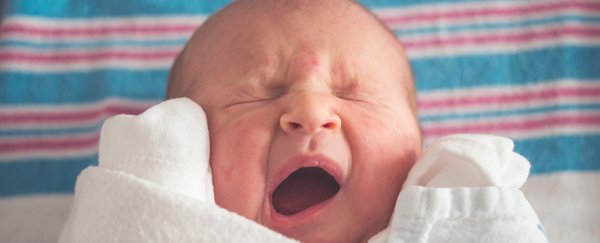Tests linking a woman's fertility with her ovarian reserve – the ovary's capacity to produce healthy eggs – can't be relied on, according to new research, and experts say the tests shouldn't be used to make decisions about when to try for a baby.
The technique has been used in IVF clinics for some time, and it was originally thought that checking a woman's ovarian reserve could also predict the short-term chances of her conceiving. Not so, says the new study.
These tests have been increasingly marketed to women to help decide whether to push forward or hold back on getting pregnant, or to inform decisions about freezing their eggs. But their validity has now being debunked by the team of researchers.
"Our study suggests that younger women with biomarker levels indicating lower ovarian reserve should not become anxious that they won't be able to have a baby," says one of the team, Anne Steiner from the University of North Carolina at Chapel Hill.
Ovarian reserve tests look at three hormonal biomarkers known to give a good indication of the number of remaining eggs: anti-Müllerian hormone (AMH), follicle-stimulating hormone (FSH), and inhibin B.
For this study, these markers were monitored in 750 women aged 30 to 44, with no history of infertility, for up to a year.
The results showed that the number of remaining eggs bore no correlation to the chances of conceiving.
In other words, many women with low ovarian reserves will be able to conceive without any problems, while some of those with good ovarian reserves will have issues getting pregnant.
"These tests are a great measures of ovarian reserve, how many eggs you have, but they don't work to predict a woman's reproductive potential," Steiner told Julia Belluz at Vox.
The message is not to use these evaluations as a way of making decisions about pregnancies, and for women not to worry that a low ovarian reserve will necessarily lead to them having problems conceiving – at least through sex.
That said, ovarian reserve tests can still be useful for deciding on treatments for women already having fertility problems, and for weighing up potential responsiveness to IVF, the researchers said.
"Hormone levels change with time, so taking a snapshot today tells us very little about what women's fertility will be like tomorrow," fertility expert Channa Jayasena from Imperial College London in the UK, who wasn't involved in the study, told the BBC.
"This study tells us that measuring these hormones to predict fertility in potentially worried and vulnerable women is wrong, and should be stopped."
There are some limitations to the study, which didn't look at long-term fertility rates beyond a year, and only looked at women without fertility problems.
However, the large number of women tested and the end results strongly indicate no relationship between ovarian reserve and the short-term chances of conceiving. The research also backs up a similar study from 2015.
The best predictor of fertility, Steiner says, is still age, though this doesn't mean older women suddenly have no chance of conceiving once they reach 35.
"It's much more of a gradual decline," she told Vox. "Yes, your ability to become pregnant is slightly lower once you hit 36 or 37, and slightly lower at 38 or 39. But it's not like someone drops off the cliff at age 35."
The research has been published in the Journal of the American Medical Association.
